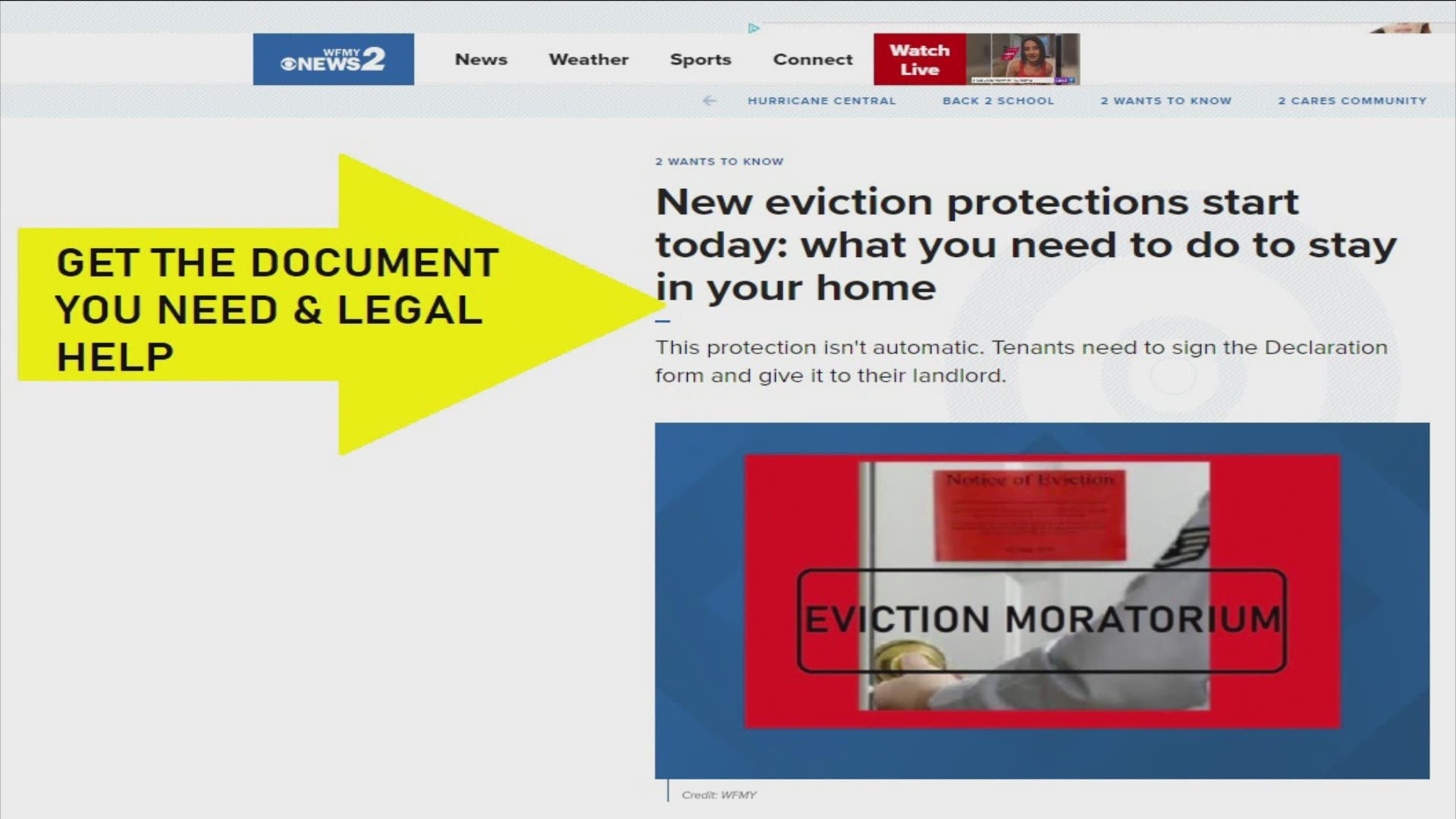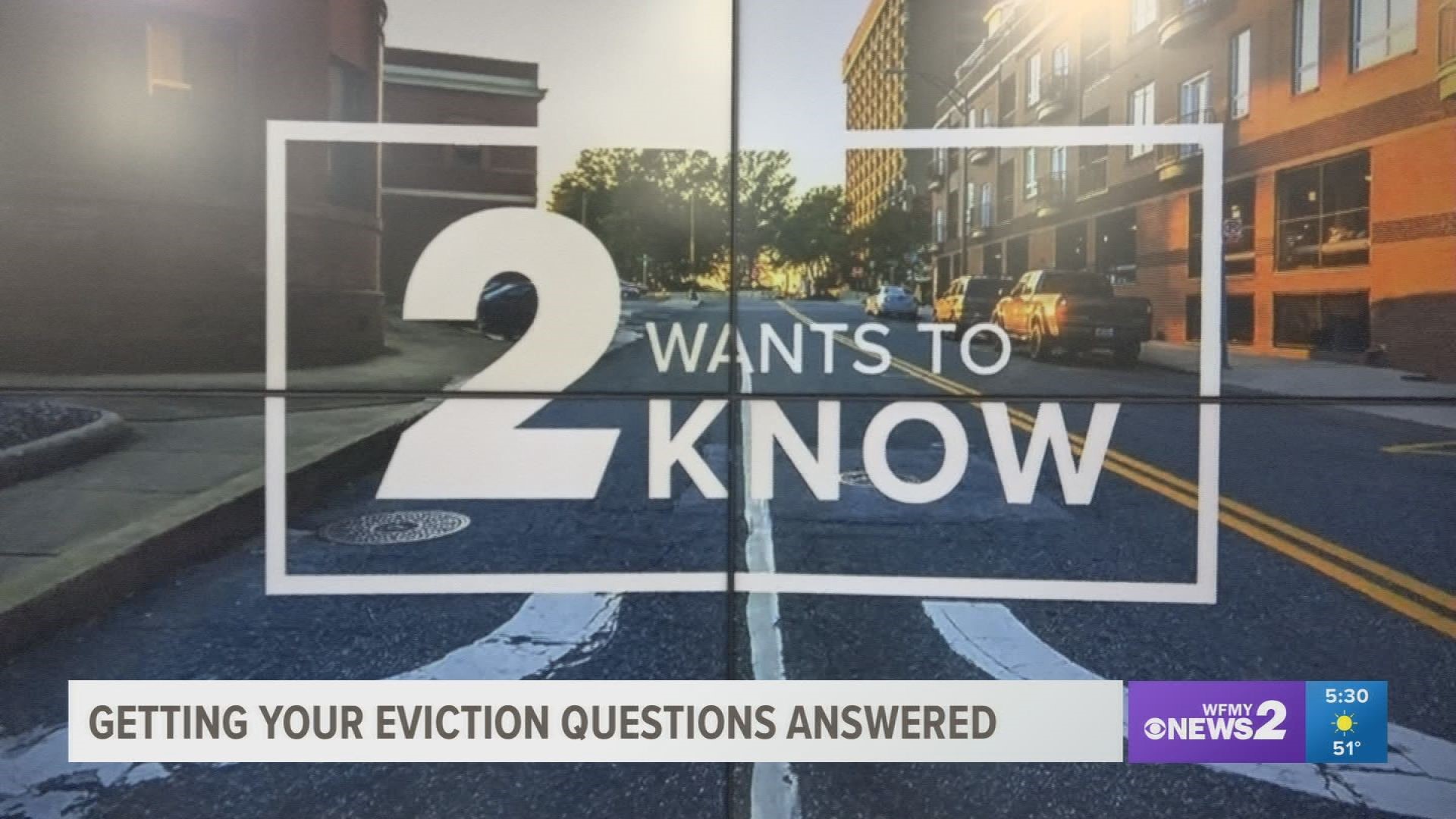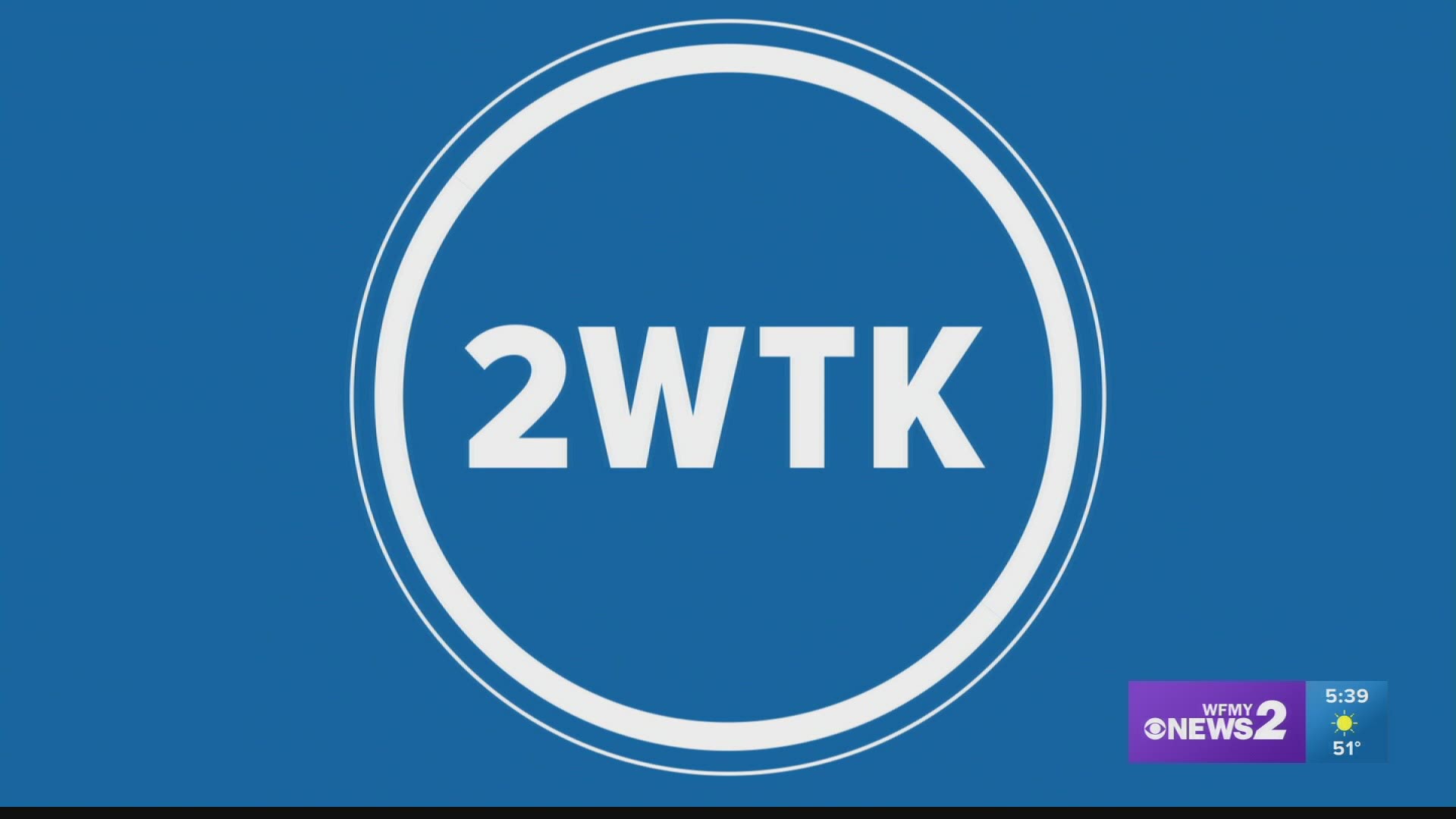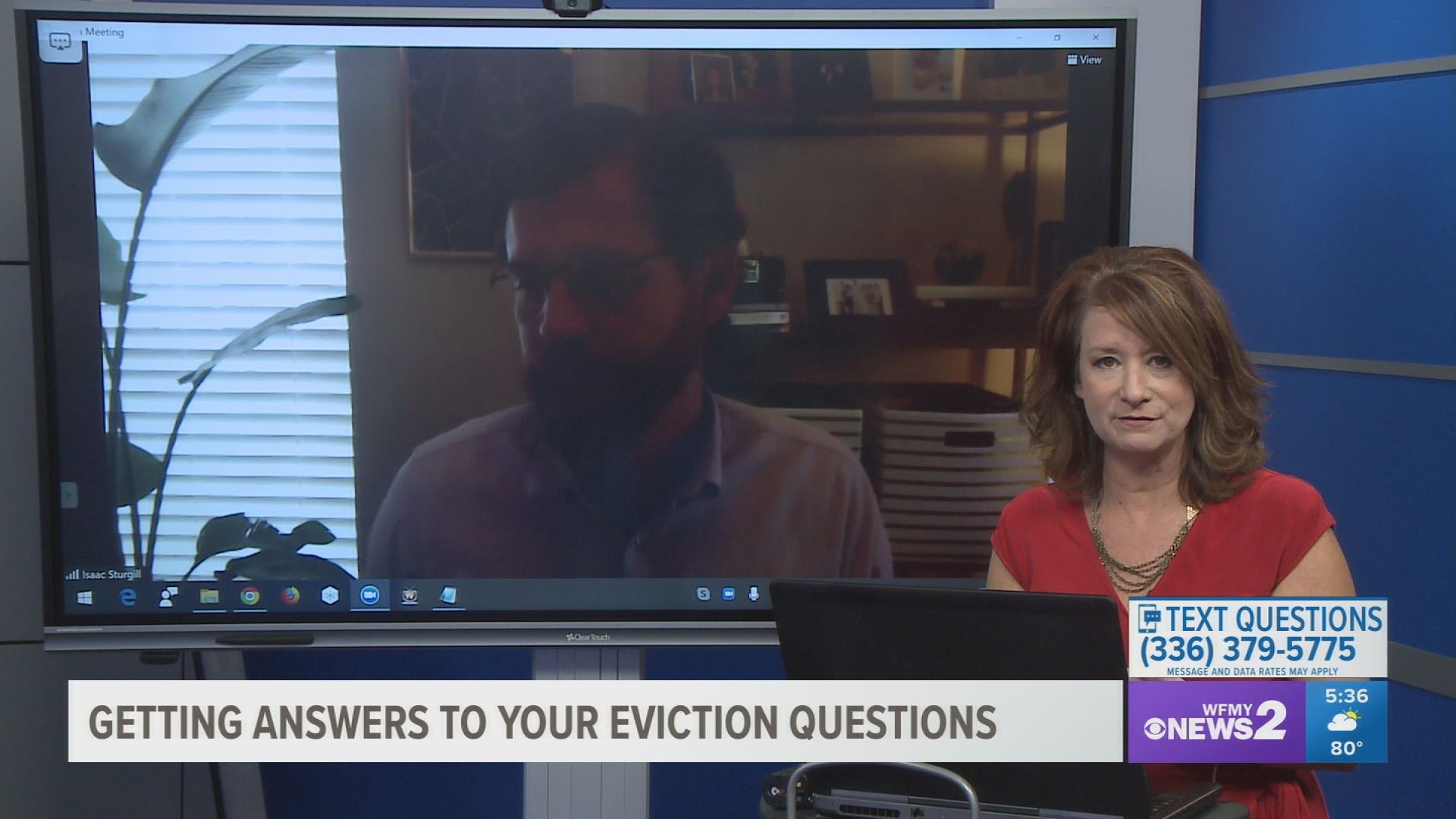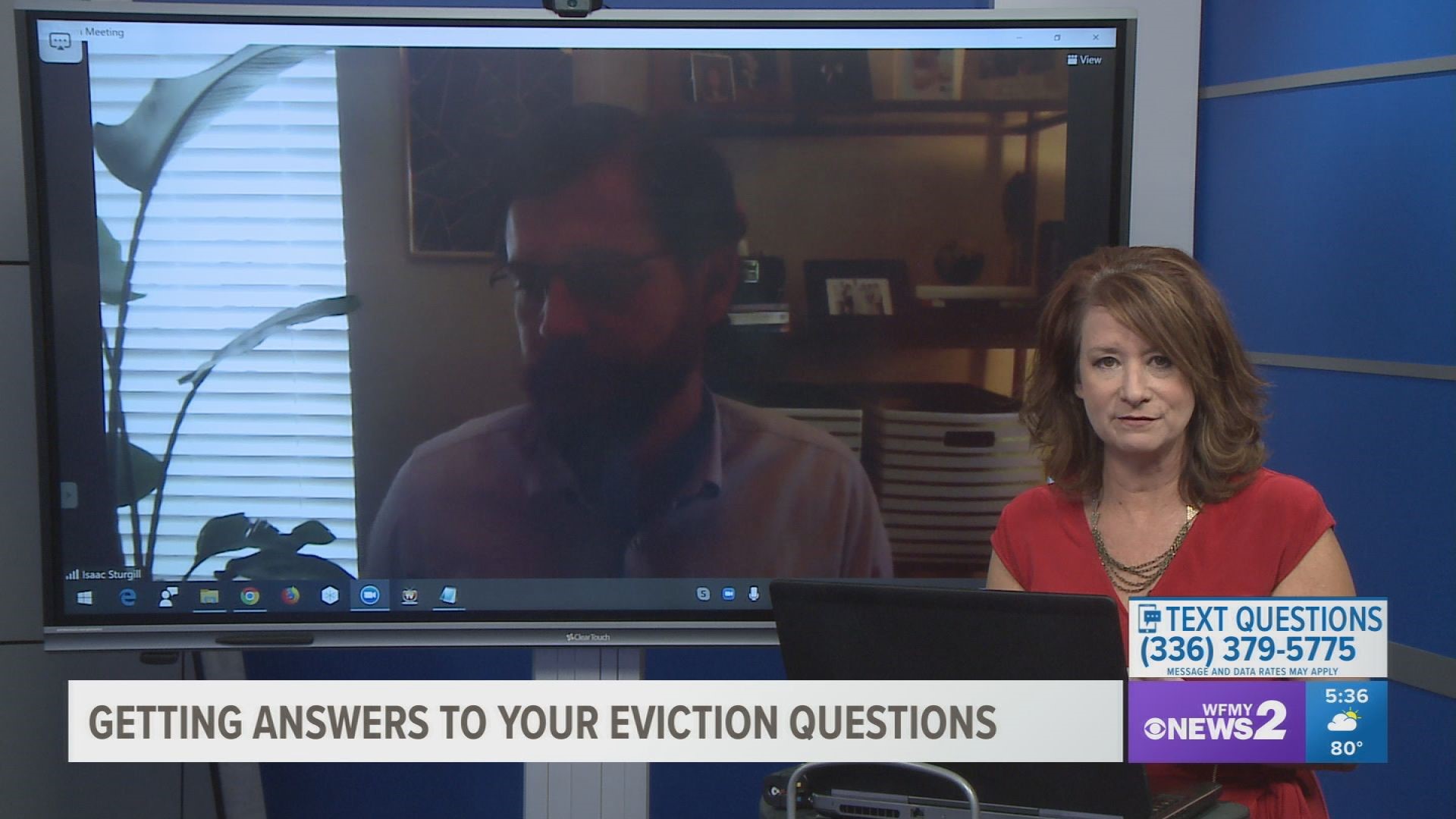GREENSBORO, N.C. — The new evictions moratorium went into effect in September. Until Dec. 31, landlords won't be able to evict tenants who can't pay their rent, but there is a fine print that you must know about to be protected.
Attorney Holly Oner of Legal Aid of NC joined us to answer your questions today.
Tenants are only protected if they can say these seven things on the CDC Declaration form are true:
*They have tried to get government assistance to help pay for rent
*They will earn less than $99,000 as a single person or $198,000 as a couple
*They are unable to pay full rent due to loss of household income
*They are making their best efforts to pay partial payments
*If evicted they would be homeless
*They understand they still owe the rent and may face penalties, late fees, and interest
*Once the moratorium is over the amount they owe in back payments is owed in full
Issac Sturgill of Legal Aid of NC joined 2WTK to answer your questions about evictions.
Tenants don't just have to say this is true, they have to find this Declaration form online, sign it, and give it to the landlord.
2WTK caught up with attorney Issac Sturgill.
“The order is very clear. The order puts the onus on the tenant. The tenant has to take the step of signing the affidavit and sending it to the landlord before they get the protection. So, if they don't do that then the order doesn't help them,” Sturgill said.
This is not like the CARES ACT moratorium. In this act:
*The tenant has to initiate the protection
*Landlords can charge rent, late fees, and interest
*This moratorium simply delays eviction
“At the end of the year, if the tenant is still behind, they'll have to face the music on Jan. 1. They will owe the money”, Sturgill said.
NEED HELP?
Legal Aid of NC is able to help you navigate the document and dealing with your landlord.
And if you need rent or utility assistance, NC 211 can help by referring you to agencies that help with both food and other resources.
Additional Local Rent and Utility Assistance Programs
Below are local government programs that provide rent and utility assistance. The NC 211 Resource database may have a local program that can help you. You could also check with local churches or community organizations to see if they have assistance available.
- Wake County residents: find out about assistance that may be available to you at housewake.org/.
- Mecklenburg County residents: find out about assistance that may be available to you at www.rampclt.com.
- Greensboro residents: find out about assistance that may be available to you at Greensboro Housing Coalition.
- Wilmington residents: find out about assistance that may be available to you at Good Shepherd Wilmington Eviction Prevention Project.
- Asheville residents: find out about assistance that may be available to you at www.pisgahlegal.org and www.homewardboundwnc.org.
- Chapel Hill residents: find out about assistance that may be available to you at orangecountync.gov/HousingAssistance.
- High Point residents: find out about assistance that may be available to you by calling (336)883-3111.
- Hickory residents: find out about assistance that may be available to you at ccmhickory.org/.
- Cabarrus County residents: find out about assistance that may be available to you at concordnc.gov/Departments/Housing.
- Burlington residents: find out about assistance that may be available to you by calling (336)222-5070

